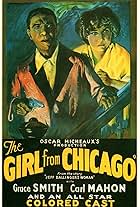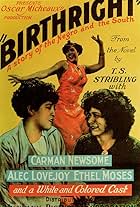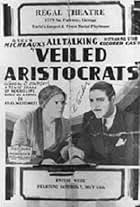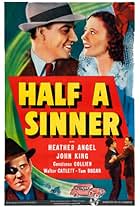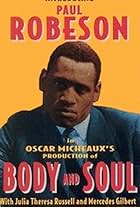A movie producer offers a nightclub singer a role in his latest film, but all he really wants to do is bed her. She knows, but accepts anyway. Meanwhile, a patron at the club gets a note say... Read allA movie producer offers a nightclub singer a role in his latest film, but all he really wants to do is bed her. She knows, but accepts anyway. Meanwhile, a patron at the club gets a note saying that she'll soon get another note, and that she will be killed ten minutes after that.A movie producer offers a nightclub singer a role in his latest film, but all he really wants to do is bed her. She knows, but accepts anyway. Meanwhile, a patron at the club gets a note saying that she'll soon get another note, and that she will be killed ten minutes after that.
Photos
- Anthony
- (as A.B. Comathiere)
Storyline
Did you know
- TriviaThe dancers in the nightclub scene were actually chorus girls from the world-famous Cotton Club in New York City.
- GoofsThe taxi arriving at the station is a hardtop, but during the ride the hood is down, then returns to a hardtop at its destination.
- ConnectionsFeatured in Black Shadows on the Silver Screen (1975)
The Faker is dominated by a series of performances in a nightclub, with dancers, singers, and comedians from the real life Cotton Club representing a slice of what the experience may have been like in this period, something I liked, even if none of them were dazzling, and the comedians were in blackface doing what amounted to a minstrel show. Note that few if any are laughing at the comedians' mockery of racial uplift, so their placement here may have been an intended contrast to everyone else, who are stylish and modern. Mabel Garrett and Laura Bowman, the two Ida's in the story, perform a couple of nice routines, and a group of showgirls also dance to "Sweet Georgia Brown" played at a frenetic pace.
The story which is draped around these nightclub acts is really two stories, making it a little confusing. That may be because Micheaux was really drawing from a total three short stories out of his Harlem After Midnight, something he mentions on the title card, but which are then summarized as just two stories in the "Producers Note" and intertitles which follow. In other words, it seems that two of the source stories from the original text were combined into The Faker, and indeed, there seems to be two fakers.
In one of the subplots, a filmmaker is seeking out a woman for his next film. When she comes over to his table, he uses the pretext that her first name is the same as another performer's, one who is more scantily clad, to get her to send the other woman over. The latter (Laura Bowman) gushes that she'll "do anything for the part," and while neither person mentions sex, it's clear she's putty in his hands, and vulnerable. The story then continues with the second vignette, one in which a man leads a woman on with the promise of marriage, and in fact marries her with a fake certificate before she realizes he's tricked her, and is now freeloading off her and cheating on her. Both stories seem to be about men using their power over naïve women to get them into bed; the first is never finished, but in the second, the man eventually pays the price.
The Killer opens with an ominous note passed to a woman in the nightclub (Willor Lee Guilford), telling her that she's surrounded and has ten minutes to live. We then get her story of coming to Chicago in a flashback, pursued by a dangerous convict (William A. Clayton, Jr.) who believes she betrayed him. He stalks her to the home she arrives at, thinking she's safe, and there is real tension when she's relaxing in her lingerie not knowing he's in the next room. Guilford played this very well, and was quite beautiful besides. Her new suitor arrives and takes her off to the nightclub, while another woman (Tressie Mitchell) arrives to meet the convict. A secret is then revealed, setting off more drama in the house.
One of the reasons this story works and flows so well is that it's not bogged down with stilted dialogue that's awkwardly voiced, which often marred Micheaux's other sound efforts. The convict is conveniently a deaf mute, so a lot of the action is without words. The camera work and editing are not stellar, but they are good enough, and the story never lags. There are fewer nightclub bits in the second half, but one of them, a provocative, pelvic thrusting performance set to Duke Ellington's "Diga Diga Doo" was certainly noteworthy and a highlight. I also loved seeing the old footage of the streets of Chicago, including the elevated train tracks. While The Faker felt unfocused, The Killer was a tight little package, and very enjoyable.
- gbill-74877
- Jul 16, 2023
- Permalink
Details
- Runtime58 minutes
- Color
- Sound mix
- Aspect ratio
- 1.37 : 1
Contribute to this page




